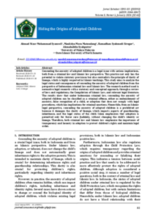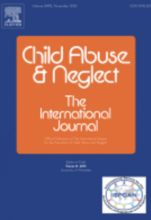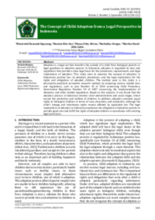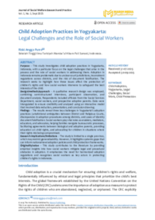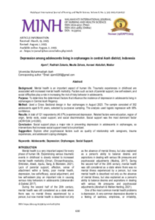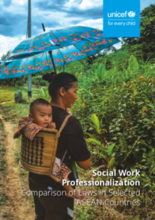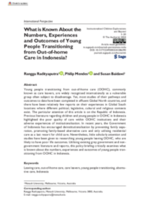demographic_data
childrens_living_arrangement
children_living_without_bio
adoption
social_work_force
key_stakeholders
Key Stakeholders
Add New DataOther Relevant Reforms
Add New Datadrivers_of_institutionalisation
Drivers of Institutionaliziation
Add New Datakey_research_and_information
Key Data Sources
Add New DataDisplaying 1 - 10 of 109
This article examines the legal status and consequences of concealing the ancestry of adopted children under Indonesian criminal law and Islamic law. It analyzes how such practices are addressed in statutory law and Islamic legal principles, highlighting the importance of lineage clarity, transparency, and the protection of children’s rights in adoption.
This review compares child protection systems in Indonesia and Ethiopia using UNICEF’s Child Protection System Strengthening framework. Both countries have established solid legal frameworks and coordination mechanisms, but progress toward system maturity remains slow due to gaps in enforcement, accountability, and support services, with Indonesia showing stronger development in workforce and data systems.
This study compares child custody and guardianship norms in classical Islamic jurisprudence and modern codifications, focusing on Indonesia’s Compilation of Islamic Law and related laws in selected ASEAN and European countries. It finds that integrating the “best interests of the child” with Islamic legal reasoning through maqāṣid al-sharīʿah can promote child protection and gender equity, offering insights for legal reform in plural societies.
This study analyzes Indonesia’s legal framework for adoption, detailing its procedures, requirements, and implications under national child protection laws. It finds that while adoption ensures children’s welfare and grants them equal rights in care and education, inheritance and lineage distinctions remain under existing legal provisions.
This study examines adoption practices in Yogyakarta, Indonesia, highlighting legal challenges such as jurisdictional ambiguities, inconsistent procedures, and document falsification. It emphasizes the crucial role of social workers in navigating these obstacles, advocating for children’s rights, and supporting families throughout the adoption process.
This study examined factors influencing depression among adolescents living in orphanages in Central Aceh Regency, Indonesia. The findings highlight the need to prioritize interventions that strengthen social support networks, while also exploring additional psychosocial factors such as caregiver relationships, trauma experiences, and coping strategies.
This paper provides a comparative analysis of social work professionalization in the Philippines, Thailand, Indonesia and Singapore. By examining the different approaches across the countries, policymakers will have examples of practices that have been effective elsewhere and adopt these to suit the context of Malaysia.
Using existing grey government and nongovernment literature and reports, this policy briefing critically examines what is known about the numbers, experiences and outcomes of young people transitioning from Out-of-Home-Care in Indonesia.
This CPC Learning Network hosted a conversation with partners and faculty affiliates on "Rethinking Child & Youth Participatory Methodologies & Processes: Presentations from our Partner Research Centers in Uganda, Indonesia, and Colombia".
This study aimed to investigate the state of transformation of the child welfare service providers for neglected children in the City of Bandung as a parameter to understand the progress of the deinstitutionalization process in Indonesia.

